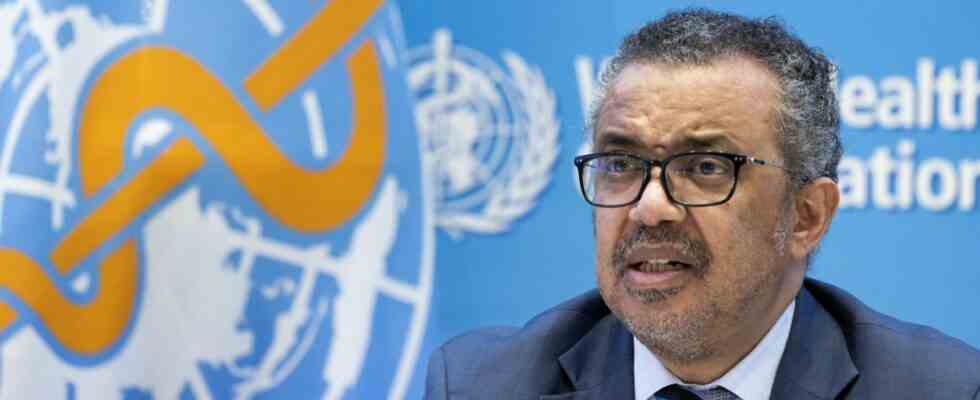The global corona emergency continues. The World Health Organization (WHO) came to this conclusion on Monday after the meeting of its emergency committee. This committee of independent experts met last weekend and recommended that the WHO maintain the “public health emergency of international concern”. The organization announced this on January 30, 2020, three years ago, because of the corona virus. According to the experts, the pandemic is not yet over.
However, the pandemic has probably “arrived at a transition”, said WHO Director-General Tedros Adhanom Ghebreyesus in Geneva on Monday. The task now is to manage this transition phase carefully. The committee agreed that Covid-19 remains a dangerous infectious disease that can cause significant damage to health and health systems. In addition, surveillance and genetic sequencing have decreased worldwide; this has made it difficult to track known variants and discover new ones. Covid-19 is rampant in some countries and is still killing many people. In the past eight weeks, around 170,000 deaths related to Covid-19 from all over the world have been reported to the WHO.
The WHO cannot officially declare a pandemic or declare it over
However, the term “pandemic” is not an official term. Experts speak of a pandemic when an epidemic affects the entire world. The term is usually only used when a new type of pathogen causes a serious illness. Sometimes, however, other diseases are also described as pandemic due to their worldwide spread, so RKI President Lothar Wieler recently spoke of the obesity and diabetes pandemic, which people should now focus more on again.
The term “pandemic” does not even appear in the repertoire of the WHO – it can therefore neither formally declare a pandemic nor declare it over. Instead, their statutes, the International Health Regulations, contain the term “Health emergency of international scope”, in English “Public Health Emergency of International Concern” (PHEIC), sometimes translated into German as “Notstand”. This is the highest alert level that the WHO can issue when a disease threatens the health of many people worldwide. It is usually an infectious disease that spreads quickly from person to person. However, this has not yet had any concrete effects; each country always decides for itself what measures to take or lift. Rather, with the declaration of a state of emergency, the WHO wants to shake governments up so that they can prepare for a threat.
At the end of 2022, WHO Director-General Tedros said he hoped that the global health emergency due to the corona pandemic could be lifted next year. The hope is to say next year: “This is no longer a pandemic.” The virus will remain, and there will always be problems with the virus in individual regions, but the world now has tools such as vaccines, medicines and rules of conduct to deal with it. However, he did not comment on a specific point in time.
In Germany, too, experts had already spoken of an end or approaching end in this country. The virologist Thomas Mertens, chairman of the Standing Vaccination Commission (Stiko), said at the end of October Bavarian radiothat the coronavirus has become endemic. One speaks of an endemic disease when a disease has become indigenous to a region and affects many people there, but no longer causes any unusual problems. Shortly after Christmas, Christian Drosten, director of virology at the Berlin Charité, then said in the daily mirrorthat the pandemic in Germany would soon be over. Politicians then called for an end to all corona measures in Germany. However, his statement was often misunderstood, emphasized Drosten recently in the NDR podcast “Coronavirus Update”: He did not declare the pandemic in Germany to be over. Rather, he assumes that the endemic state will be reached after this winter.

